Rich Snippets
What Are Rich Snippets?
Rich snippets (also known as “rich results”) are normal Google search results with additional data displayed. This extra data is usually pulled from structured data found in a page’s HTML. Common rich snippet types include reviews, recipes, and events.
Why Are Rich Snippets Important?
The vast majority of Google search results display the same three pieces of data:
- Title tag
- Meta description
- URL
Here’s an example for the search query “seo basics”:

That’s a normal “snippet.”
Rich snippets take a normal snippet and add to it.
Here’s an example of a rich snippet for a book:

As you might expect, rich snippet result pages are more eye-catching than normal search results. Which can lead to a higher organic CTR.
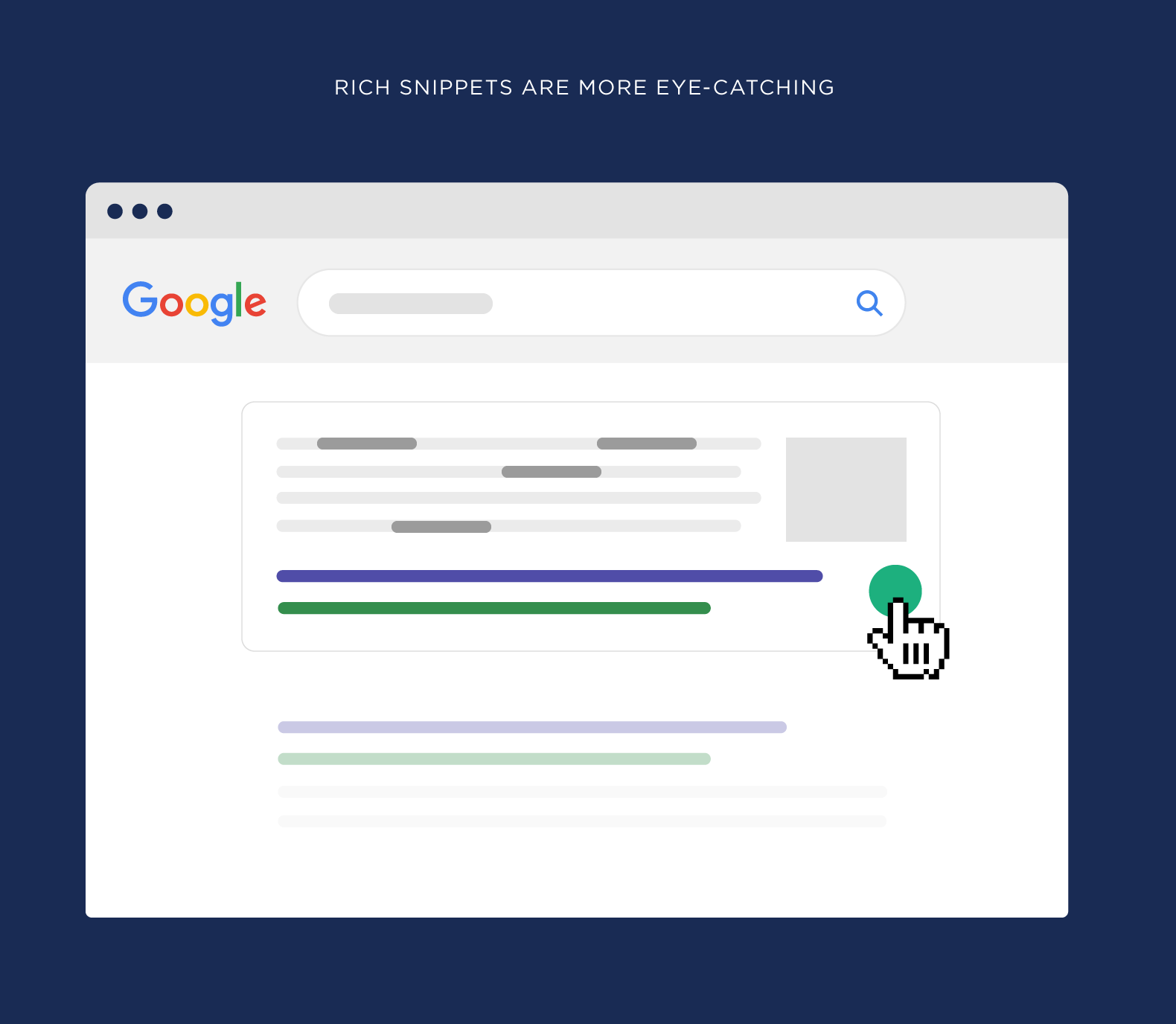
Google gets rich snippet data from structured markup (like the Schema markup) in your page’s HTML.
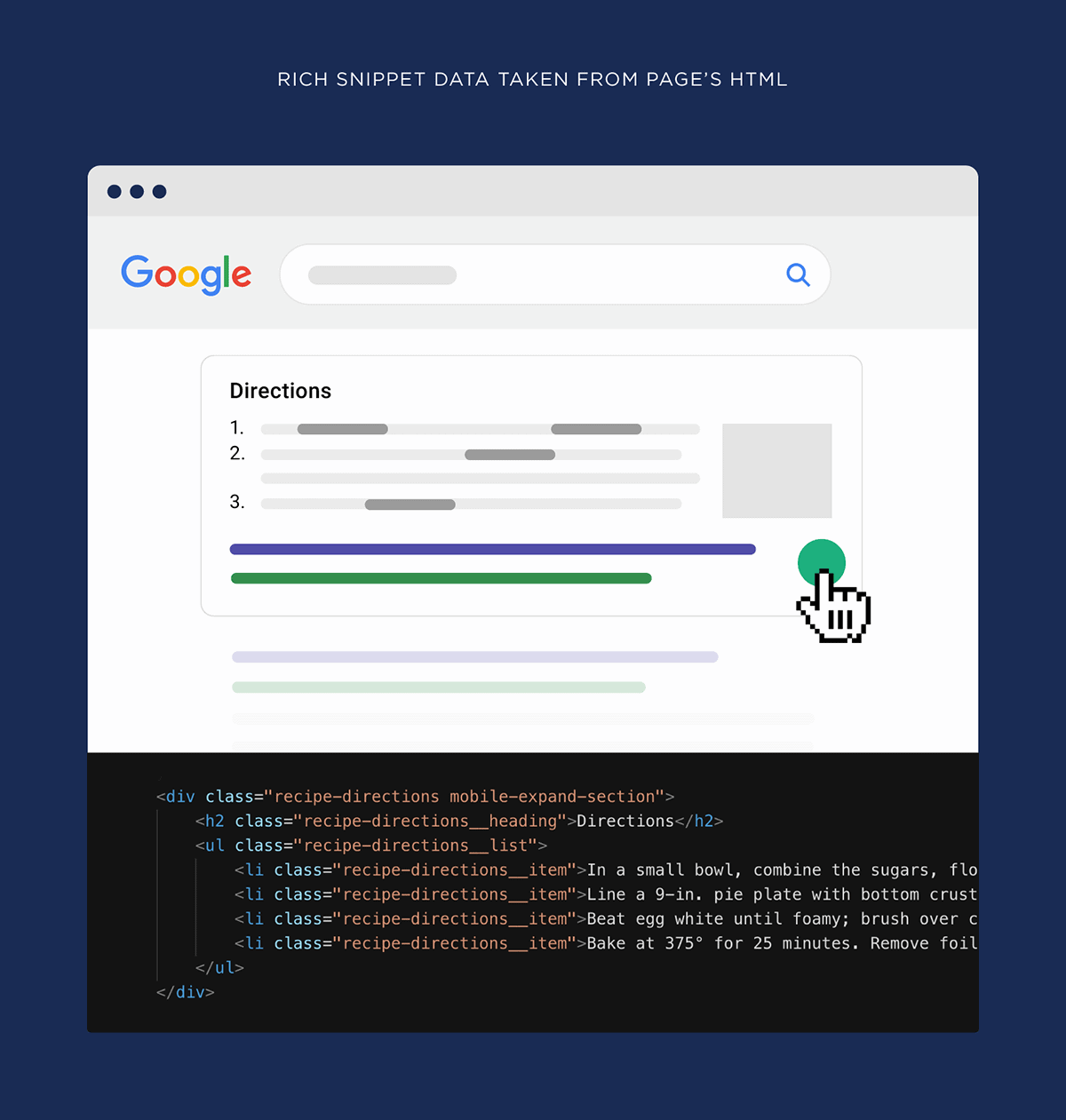
Even though some people think that using structured data can improve your search engine rankings, Google’s search liaison Danny Sullivan has stated on X (formerly Twitter) that using structured data is not a ranking signal.

But Google does say that structured data helps it better understand your webpages’ content.
“Google Search works hard to understand the content of a page. You can help us by providing explicit clues about the meaning of a page to Google by including structured data on the page.”
So, at least for now, the main benefit of rich snippets is providing better context to search engines and the potential for increased click-through rates.
With that, here’s how to get rich snippets.
How to Optimize Your Site for Rich Snippets: 4 Best Practices
1. Choose a Rich Snippet Type
Your first step is to identify the type of rich snippet you want to get. That way, you can use structured markup that’s specifically designed to get that type of rich snippet in the SERPs.
There are dozens of rich snippet types out there. But a good chunk of them (like flight info and books) only apply to a very specific type of site.
That’s why we’re going to focus on the eight most common types of rich snippets.
Reviews
Displays a star rating (out of 5). It can be an individual reviewer or aggregate reviews from users.

Recipe
A special type of structured data that only applies to recipes. Recipe markup includes data like time to prepare the dish, reviews, and recipe images.

Music-Related
Includes schema types like MusicAlbum, MusicRecording, MusicEvent, and MusicGroup.
Provides Google with additional information about music content, such as album release dates, track lists, and artist details.

Product
Gives search engines information about a specific product (including price and product images).

Organization
Helps Google understand key information on an organization (like a business), including address, logo, and other extra information.

NewsArticle and BlogPosting
Helps news articles and blog posts appear in the “Top Stories” carousel in the search results, which requires adherence to Google News content policies.
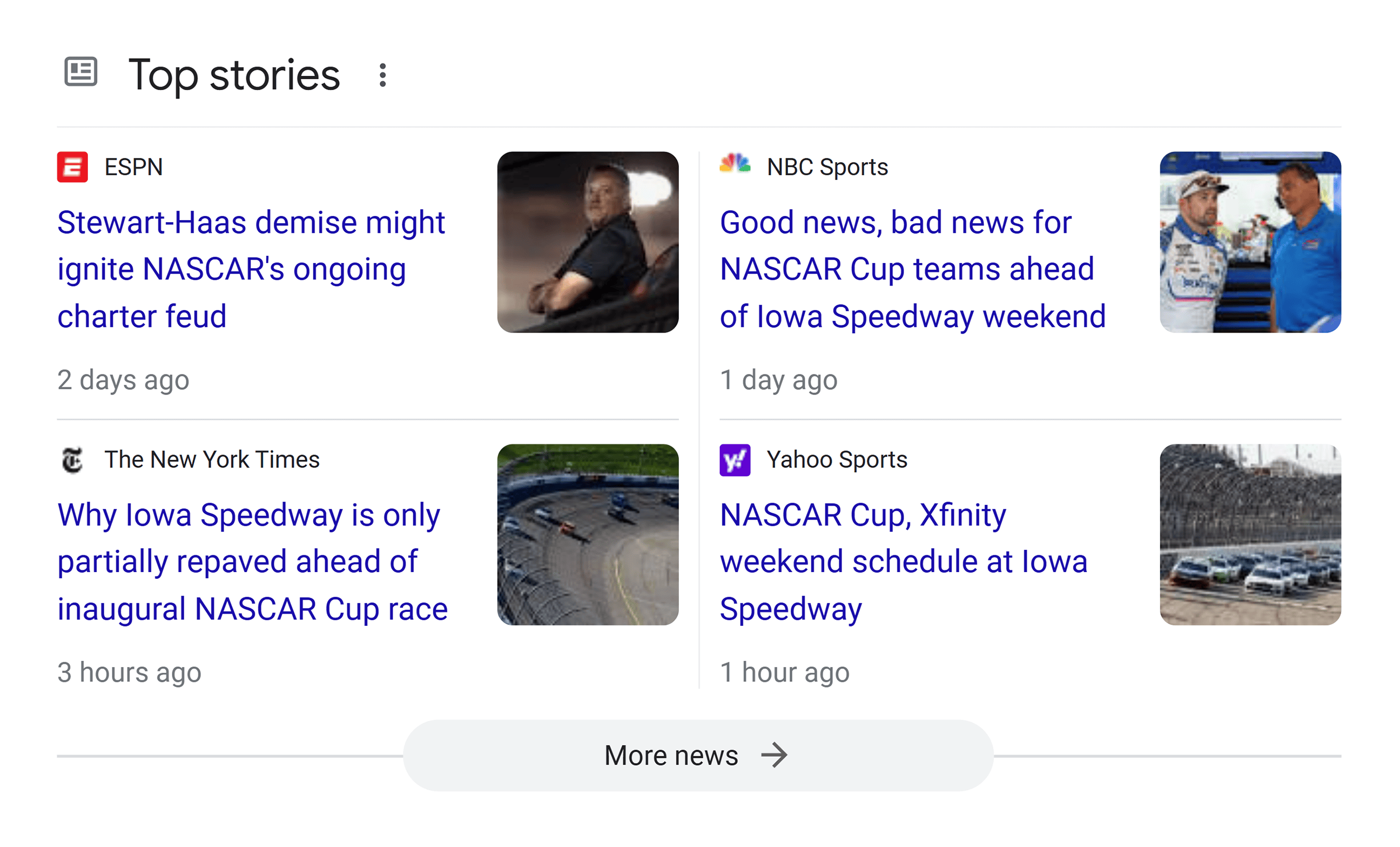
VideoObject
Search engines can’t “watch” videos on your page. So, video markup helps search engines understand what your video content is all about.

Event
Includes information on dates, times, location, and more.

So, once you’ve picked a rich snippet type that makes sense for your content, it’s time to make it happen.
2. Understand the Basics of Structured Data
Structured data helps search engines better understand your content.
For example, let’s say you just published a blog post that featured a chili recipe:
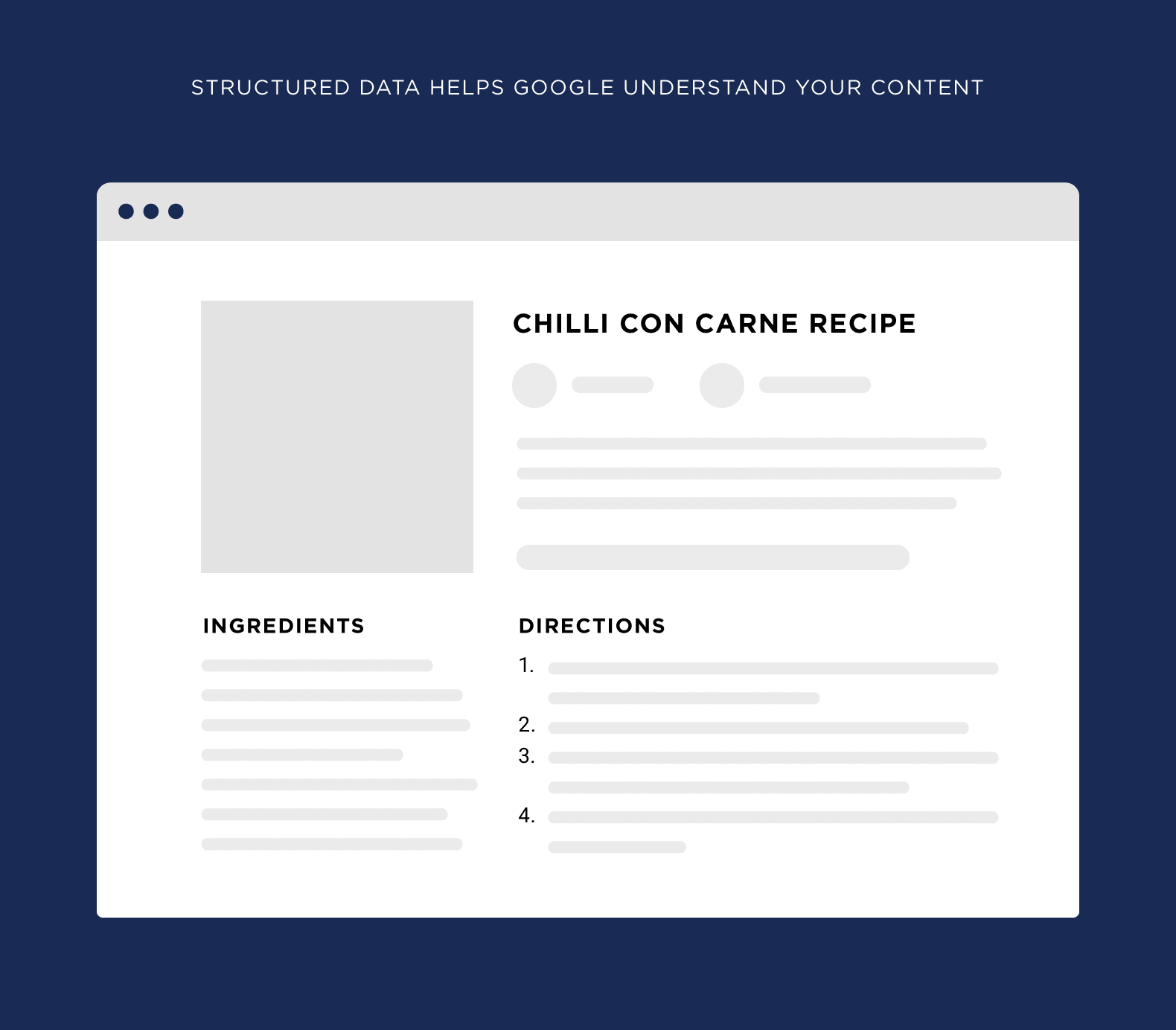
Without structured data, Google and other search engines have a hard time understanding:
- How long the recipe takes
- Which images are of the recipe itself
- The list of ingredients
- Steps
Enter: structured data.
When you add Recipe markup to your page, you tell search engines:
- “The recipe takes 45 minutes”
- “This is the list of ingredients”
- “Here’s a picture of the dish”
And if you play your cards right, Google will show this data in the search results as a rich snippet:
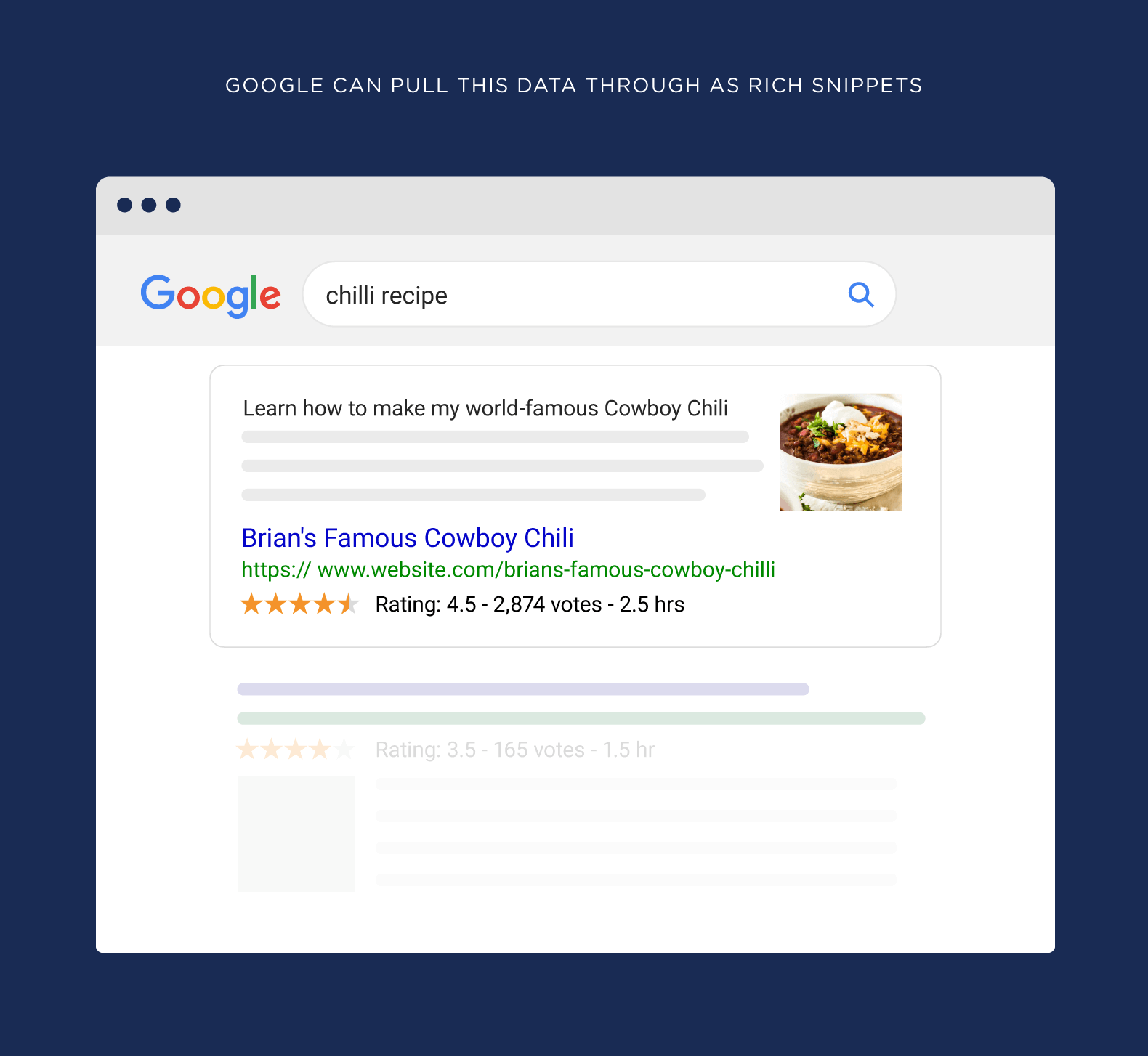
Pretty cool.
3. Implement Structured Data with Schema
When it comes to structured data, most websites use Schema.org markup.

That’s because Schema is supported by all the major search engines (including Bing). And as you’ll see in a minute, it’s pretty darn easy to set up.
All you need to do is find the type of markup that you want to use on Schema.org.

And markup your content using the guidelines on that page.

Google also has solid documentation on structured data.

In my opinion, Google’s stuff is a lot easier to understand for people who aren’t pro developers.
How you actually add structured data code to your website is completely up to you.
If you use WordPress, there are plenty of plugins to choose from:
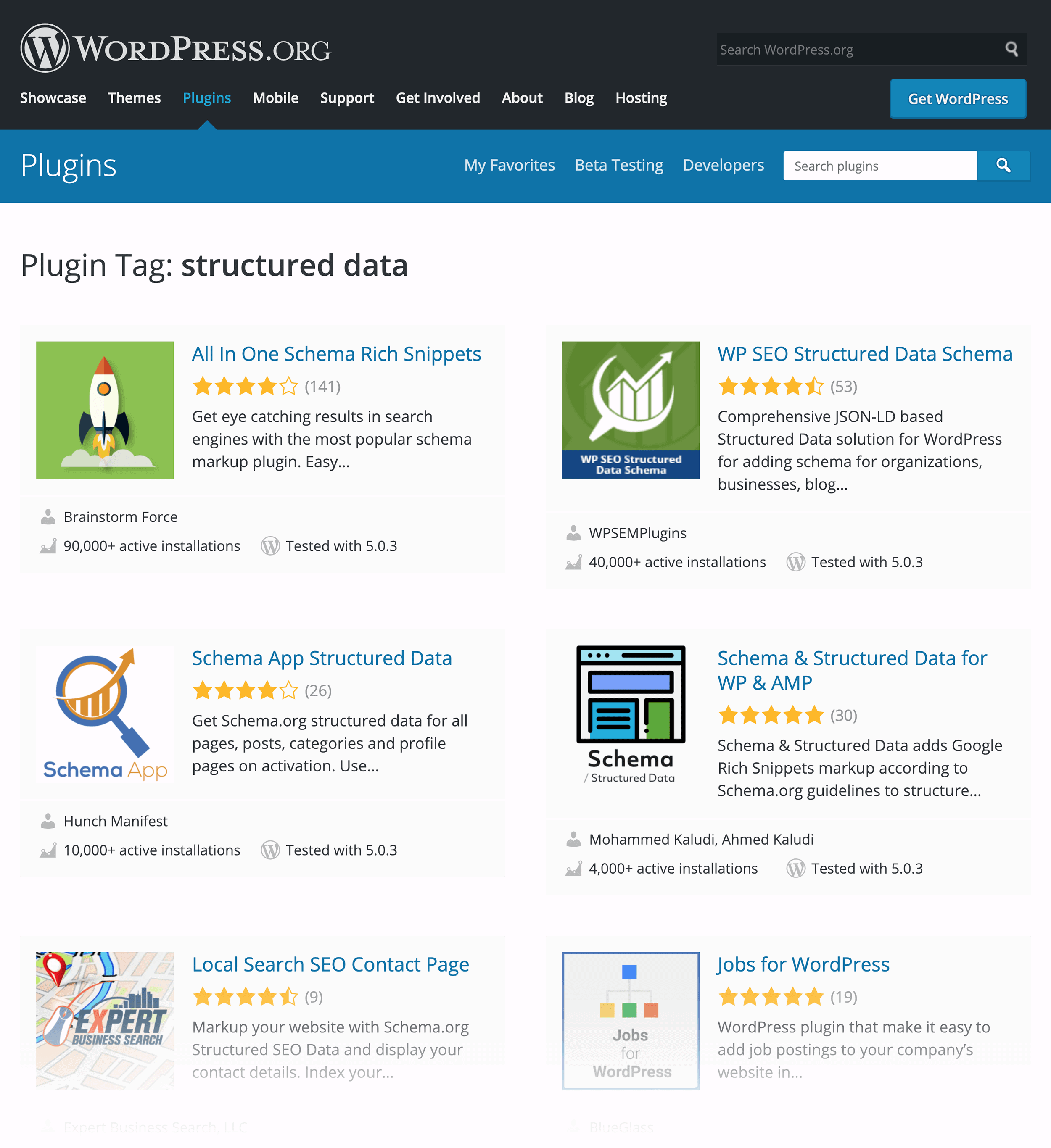
And if you want to add your structured data markup without the help of a plugin, you can use Microdata or RDFa. But I highly recommend using JSON-LD.
That’s because JSON-LD is the easiest way to add structured markup to your page in most cases. And Google agrees:

Without JSON-LD, you need to manually add structured data to the HTML of your page:
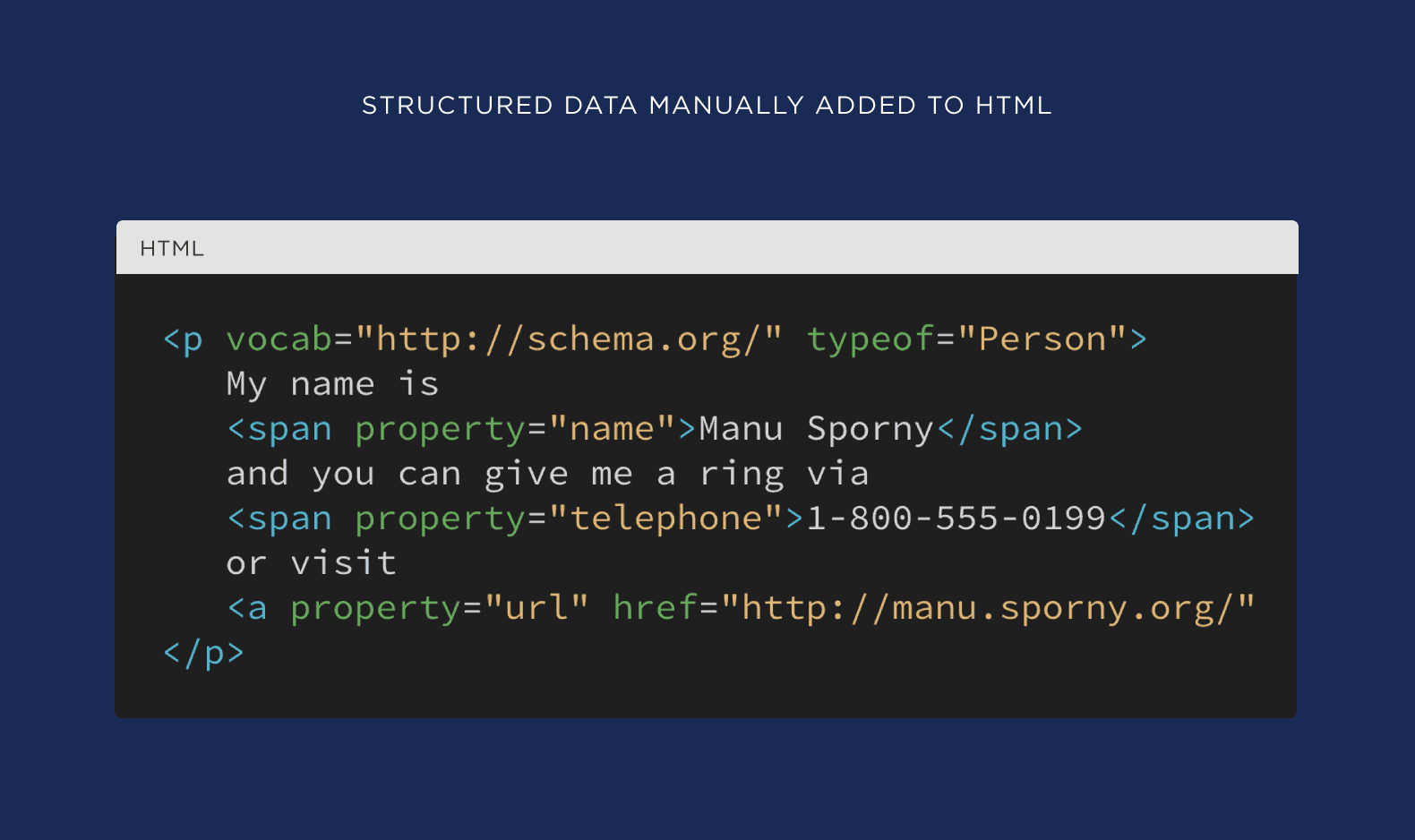
This is a huge pain. Plus, adding new code to your existing HTML increases the odds that something will go wrong.
But with JSON-LD, all of your structured data is packed into a little piece of JavaScript code that goes into thesection of your webpage:
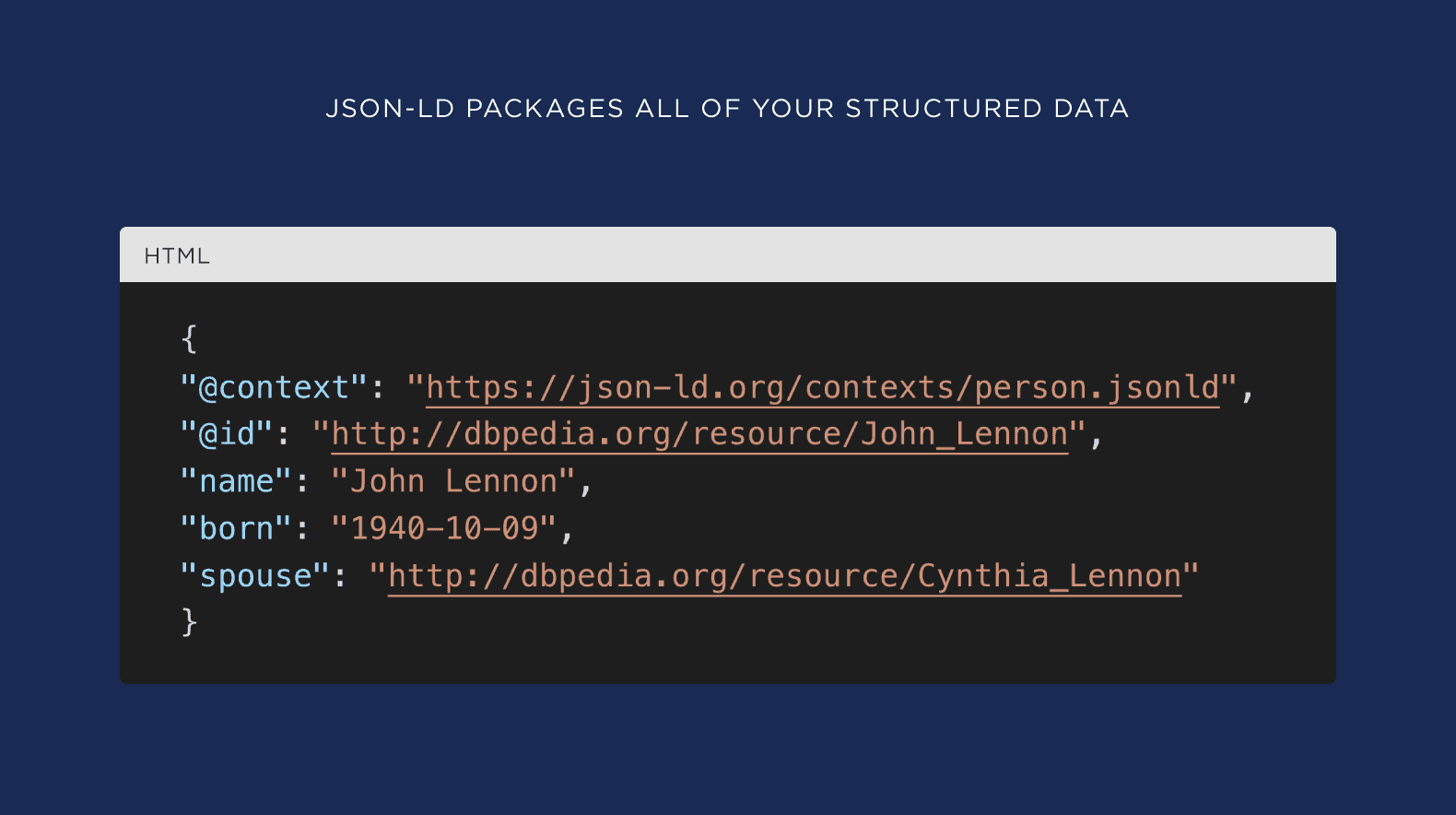
4. Verify with the Rich Results Test Tool
Your last step is to make sure your structured data is set up correctly.
Fortunately, Google launched an AWESOME tool that makes this step an absolute cinch: the Rich Results Test.

To use it, either pop in a live page URL from your site:

Or copy and paste the HTML:

And hit “Test Code”.
Google will then show you any structured data that it finds on your page.

And if the tool finds anything funky, they’ll let you know:

One thing I should point out:
There’s no guarantee that structured data will result in a rich snippet. Even if you have everything set up here PERFECTLY.
In fact, Google makes this super clear in their documentation:

In other words:
Using structured data correctly maximizes the odds of getting rich snippets. But it doesn’t always work.
Learn More
Mark Up Your Content Items: A solid overview of structured markup that comes straight from Google.
Rich Snippets: Troubleshooting: Are your Rich Snippets not showing up? This detailed troubleshooting video from the Google Webmaster channel can help you figure out what’s going on… and fix it.
Spammy Structured Markup: Although rare, it’s possible to get a message in Google Search Console about “Spammy Structured Markup.” This guide from Google helps you figure out how to get back on track.